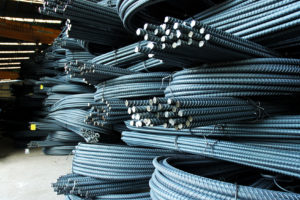 At the end of 2015 the global steel market reached a value of $753.4 billion in 2015, with a negative compound annual growth rate (CAGR) of 11.2% in the last four years.
At the end of 2015 the global steel market reached a value of $753.4 billion in 2015, with a negative compound annual growth rate (CAGR) of 11.2% in the last four years.
China is the largest steel producer globally, commanding 49.6% of total market value and exporting more than the North American Free Trade Agreement (NAFTA) and European Union (EU) countries combined. As it accounts for almost half of the global market, changes in the Chinese steel supply and demand impact the global market situation significantly. Goska Kafel, Analyst for MarketLine, explains: “The key factor driving recent market contraction is the large oversupply of steel that has forced prices down. In 2015, as demand for steel dropped in China, production volumes took a slump globally. Additionally, China is exporting its overcapacity below its costs to the rest of the world, adding pressure to other regions which also face overcapacity issues.”
Steel prices rose throughout most of 2016 as a protectionist backlash has prompted authorities in the US, the EU and other regions to clamp down on cheap imports from China. However, the enactment of tariffs and duties by other countries and regions could likely have the negative long-term impact of allowing protectionism to become the standard, which may allow inefficient steel producers to have a safe haven.
The global market is forecast to grow with a CAGR of 2.8% between 2015 and 2020, reaching a value of $865.5 billion. The end of the commodity boom, combined with restrained capital investment around the world are key cyclical factors contributing to the weak outlook, according to the World Steel Association.
Kafel concludes: “China will keep its position as the largest producer and consumer of steel globally. However, as the country is under pressure to curb production due to rising trade cases against its dumping, it is expected that the increased production of Chinese steel will serve domestic demand more rather than flood international markets in 2017.”



